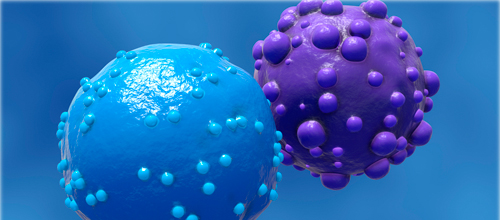July 3, 2017 (Medical News Today)
Overall, the immune system does a remarkable job defending the body from disease-causing agents. When it comes to cancer, however, it falls short. Niroshana Anandasabapathy, MD, PhD, at Brigham and Women’s Hospital, and a team of investigators have discovered a strategy that cancers may be utilizing to hide themselves from the defense mechanisms of the immune system.
Evidence from this genetic program was observed from 30 human cancers of the peripheral tissue. This study paves the way for a new immunotherapy target as well as gives an understanding for why the immune system fails to spot cancers that arise in tissues.
Immune mononuclear phagocytes were studied and researchers refer to this “group of disparate cells” as the “’Pac man’ of the immune system.”
These cells can sense dying tissue or pathogens, consume them, and then present their characteristics on their surface and “teach T cells to maintain tolerance to healthy tissues or to fight infections and pathogens.” This “genetic program,” although significantly reduces inflammation, is also able to be homogenized by various human cancers of tissues, making the immune system unable to detect and destroy cancer.
Interestingly, researchers found IFN-gamma, a molecule involved with regulating immunity, and tissue immune signatures to be much higher in skin cancer than in healthy skin. An immune system response measured by IFN-gama and tissue signatures, along with better metastatic melanoma survival outcomes, means such signatures could become potential biomarkers for cancer survival.
An important discovery was made when researchers uncovered that turning off the gene, SOCS2, gave the the immune system the capability to locate and attack melanoma and thymoma in mouse models.
These findings reveal the way in which the immune system operates when detecting cancers, as well as give rise to the development of new therapeutic targets to effectively treat cancers that were previously overlooked by the immune system.




